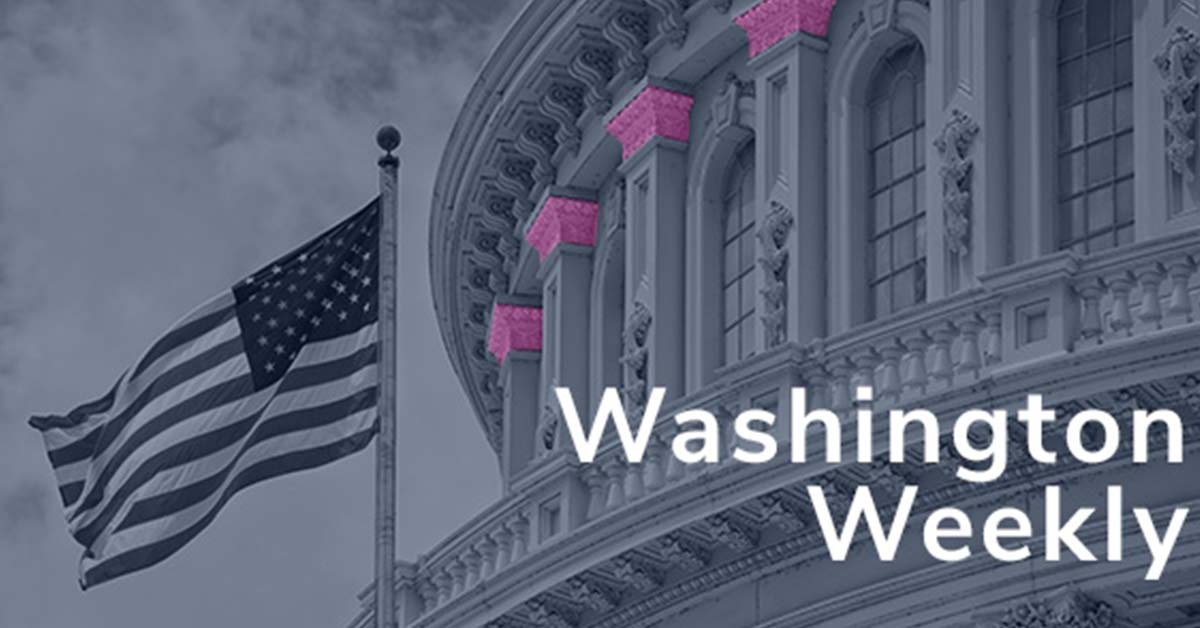
The House
After cancelling scheduled votes for early in the week, the House will formally be back in session on Wednesday this week with much to accomplish before the end of the year. Federal government funding is currently set to expire in just eleven days. Last week, it was widely reported that House Appropriations Committee Chairwoman Nita Lowey (D-NY) and Senate Appropriations Committee Chairman Richard Shelby (R-AL) reached an agreement on top-line spending levels for all twelve parts of an omnibus appropriations package but those numbers have yet to be released.
Further complicating negotiations, House Minority Leader Kevin McCarthy (R-CA) is reportedly opposed to the deal reached by Lowey and Shelby. If Congress does not pass an FY2021 appropriations bill or a Continuing Resolution stopgap measure, the federal government will shut down beginning on December 12. The House and Senate will also look to iron out differing defense policy bills in conference and pass the National Defense Authorization Act (NDAA) before the end of the year. President Trump has repeatedly threatened to veto any NDAA that authorizes changing the names of military bases named after Confederate generals.
House Democratic Leadership told Members to plan to remain in Washington through the weekend in case deals are reached to conclude legislative business for the year. As of now, the House is scheduled to adjourn for the year next Thursday, December 10.
As the government funding deadline and end of year approach, the chances of Congress passing another CARES Act sized relief bill to address the pandemic and its economic impact continue to dwindle. Though there is an increase in COVID-19 cases both nationwide and in Congress, and critical relief programs are set to expire at the end of the year, it is increasingly unlikely that a major legislative package will be passed before yearend. At this stage, it is more likely that Members look to attach certain provisions to any government funding legislation or advance standalone measures. Pressure to pass something addressing the needs of small businesses will increase for Speaker Nancy Pelosi, who has thus far remained steadfast in her position that the only way forward is with another big relief package.
As the work of the 116th Congress continues, so do preparations for the upcoming 117th Congress. House Democrats are expected to elect a new leader of the DCCC on Thursday this week at an Organizational Caucus Meeting. At the same meeting, House Democrats are expected to choose new Chairs of the Appropriations, Agriculture, and Foreign Affairs committees.
The Senate
Majority Leader Mitch McConnell and Senate Republicans filed cloture on two more federal judiciary nominations this morning and expect to advance both by the end of the week. On Wednesday, December 2 at noon, Mark Kelly (D-AZ) will be formally sworn in as a US Senator, bringing the chamber’s split to 52 Republicans and 48 Democrats for the remainder of the 116th Congress. The upcoming Senate elections in Georgia that will determine the Senate majority have brought a new and complicated variable to the board as McConnell and Senate Democratic Leader Chuck Schumer work to avoid a government shutdown and make preparations for the upcoming 117th Congress. Both parties will have to hold off on determining committee chairs and ratios until the results in Georgia are finalized. It is also important to note that even if Democrats are able to win both Georgia Senate races, bringing the Senate to a 50/50 split, Republicans will still retain control of the chamber until Kamala Harris is formally sworn-in on January 20, 2021. Until that date, Vice President Michael Pence would serve as the tie-breaking vote if necessary.
Leading up to then, Senate Appropriators will continue working to hammer out a government funding agreement with their House counterparts and both chambers will look to go to conference committee to address the NDAA.
The Transition
The transfer of power between the outgoing and incoming Administrations began officially last Monday, but today, President-elect Joe Biden and Vice President-elect Kamala Harris will receive the Presidential Daily Briefing for the first time. Biden also named former Federal Reserve Chairwoman, Janet Yellen, to serve as his choice to serve as Treasury Secretary-designate. Neera Tanden, a former Obama-era HHS staffer, was also named as his choice for Director of the Office of Management and Budget. Both Yellen and Tanden’s respective nominations are subject to Senate approval. While the choice of Yellen so far has received bipartisan praise, Senate Republicans have already indicated Tanden will face a tough confirmation process.
The uncertainty in the balance of power of the Senate may delay Biden cabinet confirmations across the board. Historically, the Senate quickly confirms key cabinet officials related to national security hours after a new president is sworn in. If one or both of the Senate elections in Georgia are unsettled after Election Day on January 5, the Biden Administration will be at a disadvantage in planning a legislative agenda without a clear decision on whether they will face a divided government.